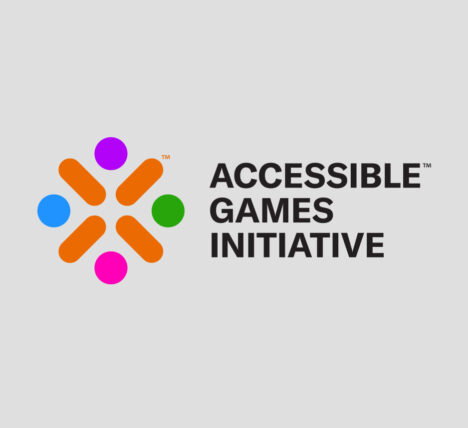New report outlines the social, mental and emotional benefits of gameplay according to academic research and affirmed by a survey of nearly 13,000 active players across 12 countries.
WASHINGTON, Oct. 10, 2023 – The Entertainment Software Association (ESA), in partnership with video game trade associations in Australia, Canada, Europe and South Korea, today released the first-ever Power of Play report. The report highlights the findings from peer-reviewed academic research about the positive effects of gameplay, which are confirmed by a survey of 12,847 active (weekly) players (ages 16 and older) in 12 countries: Australia, Brazil, Canada, France, Germany, Italy, Japan, Poland, South Korea, Spain, the United Kingdom and the United States. The survey revealed that in addition to entertainment, video games provide players with a number of social and emotional benefits that are shared on a global level.
Having fun is the top reason people play video games (69% of global players), but they also play for a variety of other reasons including to keep one’s mind sharp (36%) and because playing games offers the ability to explore new worlds and ideas (27%). Nearly a quarter of respondents (24%) globally say they play video games to manage and/or improve their mental health. In all 12 countries, 71% of respondents said playing video games helps them feel less stressed. In the U.S., 78% of respondents said the same, pointing out that video games also help them feel less anxious (68%) and less isolated/lonely by connecting them to others (53%). Of the countries surveyed, only Brazil had a greater number of respondents than the U.S. saying video games help them feel less stressed (87%) and less anxious (78%).
“The Power of Play report affirms globally what we already knew to be true in the United States: video games have the power to transcend entertainment,” said Stanley Pierre-Louis, President and CEO of the ESA. “The social and emotional benefits of video gameplay are felt by a global, diverse group of players that build communities and have the power to affect positive change in each other’s lives.”
More than half (52%) of global players say video games helped them get through difficult times in their lives, with that number increasing to 59% for U.S. respondents. Players also agree that video games provide other mental health benefits:
- About 75% of global players believe video games provide mental stimulation and stress relief.
- Nearly two-thirds also find that video games provide them with a healthy outlet from everyday challenges (64%) and help them feel happier (63%). Players in Brazil (83%) and Poland (76%) were most likely to say games help them feel happier, with U.S. players at 71%.
Crossing geographic borders, video games also provide a platform for community building where otherwise not physically possible:
- More than half of global respondents (51%) say they play games with other people online and 38% play with other people in person weekly, with 68% across all markets rating their experience of playing with others – both online and in person – as positive or extremely positive.
- More than two-thirds (67%) of global players agree video games introduce people to new friends and new relationships. This number was highest in Brazil (86%), lowest in Japan (47%) and close to the global average in the U.S. (71%). Nearly half (42%) of global players have met a good friend, spouse or significant other through video games.
- More than three-quarters (77%) of global players agree video games bring different types of people together and nearly two-thirds (60%) say video games create a feeling of community.
People are not only skilled game players, but they also say they have gained valuable life skills applicable outside of the virtual world of video games:
- Nearly three-quarters of global players (73%) agree video games can improve creativity (78% of U.S. respondents said the same).
- Across the world, 69% of players agree video games build problem-solving, cognitive and teamwork and collaboration skills, with 84% of U.S. players saying video games improve problem-solving skills.
- Video games also promote adaptability and communications skills with 65% and 60% of global players agreeing, respectively.
Other noteworthy results from the global Power of Play report include:
- On a weekly basis, people tend to play mostly by themselves (87% globally, 90% in the U.S.) but also make time to enjoy gameplay with others online (51% globally, 52% U.S.) and in-person (38% globally and in the U.S.). Players in Brazil (62%), Poland (46%) and South Korea (45%) are the most likely to play with others in person.
- More than a quarter (28%) of global players say they never use in-game communication functions while just 8% say they always use them.
- Of global players, 75% believe there is a video game for everyone.
Access the Power of Play report at www.theesa.com/power-of-play-2023
###
About the ESA
The Entertainment Software Association (ESA) serves as the voice and advocate for the U.S. video game industry. Its members are the innovators, creators, publishers and business leaders that are reimagining entertainment and transforming how we interact, learn, connect and play. The ESA works to expand and protect the dynamic marketplace for video games through innovative and engaging initiatives that showcase the positive impact of video games on people, culture and the economy. For more information, visit the ESA’s website or follow the ESA on Twitter @theESA.
About the Power of Play Report Methodology
AudienceNet conducted an interactive online survey of 12,847 respondents in 12 countries. In each country, respondents were recruited via a screening survey sent out in accordance with quota samples that were statistically and demographically representative of the respective 16 year+ online populations. The screening questions ensured that, in each country, there was a final sample of 1,000+ active gamers, all of whom played video games for at least an hour per week. All survey respondents were accessed through professionally accredited consumer research panels.
AudienceNet is a fully accredited global consumer research company, currently conducting nationally representative research in 52 countries. As a Market Research Society (MRS) Company Partner, AudienceNet is bound by the MRS Code of Conduct, as well as GDPR in relation to the collection and handling of consumer research data.




